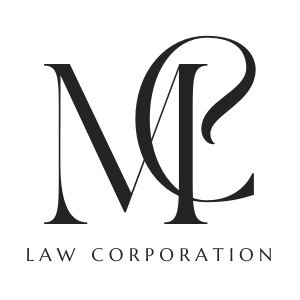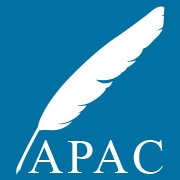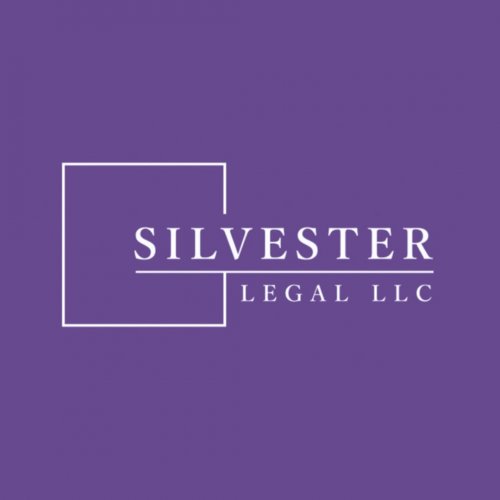Best Bankruptcy & Debt Lawyers in Singapore
Share your needs with us, get contacted by law firms.
Free. Takes 2 min.
Or refine your search by selecting a city:
List of the best lawyers in Singapore
Legal guides written by Silvester Legal LLC:
- Mediation: Parties get to meet early on
- Mediation: Keeping disputes out of court
- Renegotiation of Contracts: Re-Align Framework
Singapore Bankruptcy & Debt Legal Articles
Browse our 1 legal article about Bankruptcy & Debt in Singapore written by expert lawyers.
- Singapore Debt Collectors: Laws and Steps to Stop Harassment
- Harassment by debt collectors is illegal in Singapore. You can apply for an Expedited Protection Order under the Protection from Harassment Act to stop it quickly. Always verify the debt and the collector's authority before paying. Ask for a written breakdown, the creditor's details, and any Notice of Assignment if... Read more →
About Bankruptcy & Debt Law in Singapore
Bankruptcy and debt law in Singapore is designed to provide a legal framework for individuals and businesses that are unable to meet their financial obligations. The legal processes involve the Official Assignee (OA) managing the bankruptcy process and court interventions to ensure fair resolutions for both debtors and creditors. The goals of the law include providing relief for debtors who cannot repay their loans, rehabilitating them financially, and ensuring creditors receive an equitable distribution of the debtor’s available assets.
Why You May Need a Lawyer
A lawyer specializing in bankruptcy and debt law can provide valuable assistance in various situations, such as when:
- You are overwhelmed by multiple debts and unable to manage repayments.
- You face potential bankruptcy proceedings initiated by creditors.
- You need guidance on restructuring your debts to avoid formal bankruptcy.
- You are a creditor looking to recover outstanding debts through legal means.
- You need advice on the implications of becoming bankrupt and strategies for financial recovery.
Local Laws Overview
Singapore's bankruptcy law is primarily governed by the Insolvency, Restructuring, and Dissolution Act 2018 (IRDA). Key aspects include:
- Minimum debt threshold: An individual can be declared bankrupt if they owe at least SGD 15,000.
- Debt Repayment Scheme (DRS): An alternative to bankruptcy for those with debts not exceeding SGD 150,000, allowing debtors to pay off debts over time.
- Automatic discharge: Individuals may be automatically discharged from bankruptcy after a stipulated period, subject to the OA's discretion.
- Nominee-assisted schemes: The Act provides options for voluntary arrangements supervised by a nominee as an alternative to bankruptcy.
Frequently Asked Questions
What is bankruptcy?
Bankruptcy is a legal process where individuals or entities unable to meet their financial obligations are declared bankrupt. The process involves assessing and distributing the individual's assets among creditors, under the supervision of the Official Assignee.
How is bankruptcy declared in Singapore?
A bankruptcy application can be made by either the debtor or a creditor. The court will declare a person bankrupt if they are convinced the individual cannot repay the debts and meets the required threshold of SGD 15,000.
What is the Debt Repayment Scheme (DRS)?
The DRS is an alternative to bankruptcy designed for individuals with debts of SGD 150,000 or less, allowing them to pay off debts over an extended period while avoiding the social stigma of bankruptcy.
Can bankruptcy be avoided?
Yes, by negotiating with creditors for a debt restructuring plan, opting for the DRS, or undergoing voluntary arrangements, individuals may avoid formal bankruptcy proceedings.
What happens when a person is declared bankrupt?
Once declared bankrupt, the individual’s assets are managed by the Official Assignee to pay off creditors. The bankrupt person will have certain legal and financial restrictions until discharge.
How long does bankruptcy last in Singapore?
Bankruptcy can last for several years. Individuals might be discharged in three to seven years, depending on their cooperation with the OA and payments made towards their debts. However, they can apply for an early discharge.
What are the consequences of being bankrupt?
Consequences include restrictions on earning capacity and credit facilities, potential impacts on employment, and limitations on managing business activities.
Can creditors still pursue debts after bankruptcy is declared?
No, once bankruptcy is declared, creditors must cease individual collection actions and participate in the bankruptcy process managed by the OA.
What is a voluntary arrangement?
A voluntary arrangement is a court-approved agreement between a debtor and creditors that can serve as an alternative to bankruptcy, involving debt restructuring and settled terms for repayment.
How can I achieve financial rehabilitation post-bankruptcy?
Post-bankruptcy rehabilitation involves financial education, strategic debt management, securing new employment, living within means, and rebuilding creditworthiness through small borrowings and timely repayments.
Additional Resources
For further information and support regarding bankruptcy and debt matters in Singapore, you might find the following resources helpful:
- The Ministry of Law (for updates on bankruptcy regulations and assistance schemes)
- The Insolvency and Public Trustee’s Office (IPTO) for practical guidance on the bankruptcy process
- Community Development Councils (CDCs) and Voluntary Welfare Organizations (VWOs) providing financial counseling services
Next Steps
If you are considering legal assistance for bankruptcy and debt issues, consider doing the following:
- Assess your financial situation and gather all pertinent documents related to your debts.
- Schedule consultations with lawyers who specialize in bankruptcy and debt law for advice tailored to your situation.
- Consider financial counseling or debt advisory services to explore alternative options to settle debts.
- Stay informed about your rights and obligations under Singapore’s bankruptcy laws.
Lawzana helps you find the best lawyers and law firms in Singapore through a curated and pre-screened list of qualified legal professionals. Our platform offers rankings and detailed profiles of attorneys and law firms, allowing you to compare based on practice areas, including Bankruptcy & Debt, experience, and client feedback.
Each profile includes a description of the firm's areas of practice, client reviews, team members and partners, year of establishment, spoken languages, office locations, contact information, social media presence, and any published articles or resources. Most firms on our platform speak English and are experienced in both local and international legal matters.
Get a quote from top-rated law firms in Singapore — quickly, securely, and without unnecessary hassle.
Disclaimer:
The information provided on this page is for general informational purposes only and does not constitute legal advice. While we strive to ensure the accuracy and relevance of the content, legal information may change over time, and interpretations of the law can vary. You should always consult with a qualified legal professional for advice specific to your situation.
We disclaim all liability for actions taken or not taken based on the content of this page. If you believe any information is incorrect or outdated, please contact us, and we will review and update it where appropriate.
Browse bankruptcy & debt law firms by service in Singapore
Singapore Attorneys in related practice areas.
Browse bankruptcy & debt law firms by city in Singapore
Refine your search by selecting a city.












